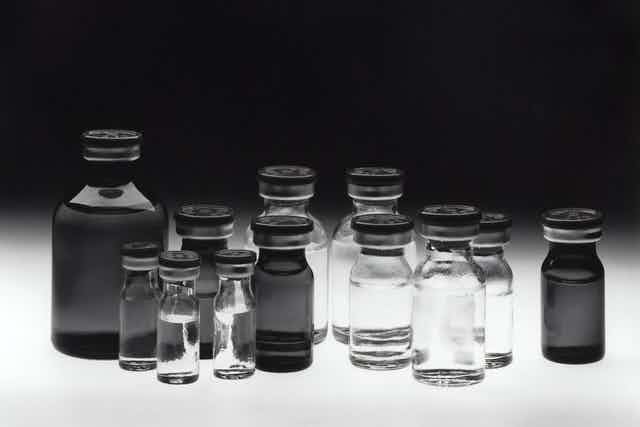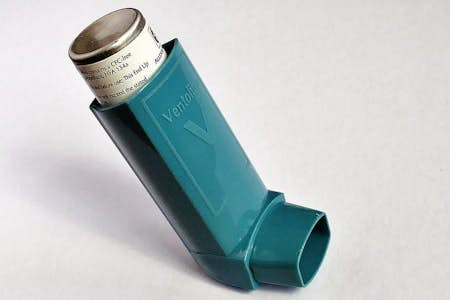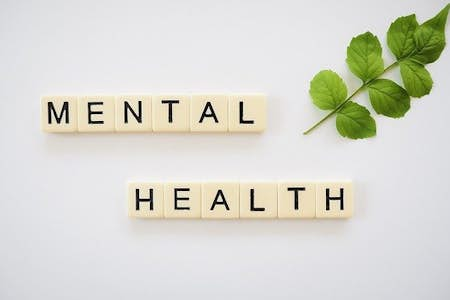Our body is home to some 50 hormones that play a vital role in every bodily process.
Hormones coordinate everything from our moods and emotions to reproductive and sexual health, appetite, metabolism, sleep and more.
Hormones are produced by the endocrine system, which includes numerous glands dispersed throughout the body. The adrenal glands, thyroid, pancreas and reproductive organs are all associated with hormone production. Each structure has to maintain healthy levels of hormones such as adrenaline, estrogen, insulin, cortisol and thyroxine.
While the body generally does an excellent job of maintaining a healthy hormonal balance, hormonal imbalances are very common. Healthline suggests that most will experience one or two episodes of hormonal imbalance at some point in their lives.
Some hormonal balances can contribute to other conditions, such as diabetes, hypothyroidism, hyperthyroidism, PMS, and Addison's disease.
For the most part, however, hormonal balances can be tackled using natural methods and will disappear of their own accord. Nevertheless, it's still crucial that anyone experiencing symptoms of hormonal imbalance visits a doctor for a proper examination and diagnosis.
What is hormonal imbalance?
The body maintains homeostasis via the coordination of over 50 complex chemicals that exchange messages throughout the body. In addition, hormones regulate the function of every structure in the body, including the brain, musculoskeletal system, nervous system and organs.
Both internal and external factors influence the balance of various hormones. Cumulative changes have a knock-on effect, potentially culminating in conditions such as diabetes, thyroid disease or polycystic ovarian syndrome (PCOS).
Many hormones are linked. For example, thyroid hormones are sensitive to changes in stress levels, in turn impacting cortisol levels that further impact thyroid activity.
Excess adrenaline stimulation can cause adrenal fatigue, reduce cortisol levels, and make it harder to deal with stressful situations, causing further adrenal fatigue. The bi-directional relationships between many hormones are carefully balanced - changes to one often affect the other.
Whilst some hormonal balances are considered within normal limits and are safe to leave untreated - as they will likely right themselves in time (e.g. during menstruation, puberty or pregnancy) - others require treatment. Hormonal balances can also be transient, such as following a particularly stressful life event, in which case they may right themselves in time.
Some hormonal imbalances are indicative of other medical conditions. For example, elevated thyroxine or adrenaline may result from a tumour of the gland.
All suspected hormonal imbalances are worthy of proper investigation by a doctor or endocrinologist. Routine blood tests can pick up many significant hormonal imbalances associated with more severe conditions, like diabetes, thyroid issues or PCOS.
What are the symptoms of hormonal imbalance?
The symptoms of hormonal imbalance are general, wide-ranging and challenging to put your finger on. For example, they include persistent unexplained fatigue, low mood and low libido, inability to deal with stress, insomnia and changes in body weight.
Whilst these symptoms may be attributed to a wide range of medical problems, particularly mood disorders like anxiety or depression, they can also be a sign of hormonal issues and imbalances.
Where people experience low-level mood issues accompanied by one or two other physical symptoms of hormonal imbalance, like anxiety and insomnia accompanied by a faster heartbeat, this may be a sign of hormonal issues.
Some hormonal imbalances are more common than others. For example, estrogen dominance has received widespread attention as one of the more anecdotally common hormonal imbalances. Estrogen and progesterone imbalance symptoms include weight gain, changes to mood, fatigue, insomnia, brain fog and low libido.
Where these symptoms occur together, it’s tempting to self-diagnose hormonal imbalance. Remember that it's important to rule out other potential causes before assuming that hormonal imbalance is the culprit.
Some typical symptoms of hormonal balance in both women and men include:
- Abnormal blood pressure.
- Anxiety and depression
- Brain fog or difficulty concentrating
- Constipation or diarrhoea
- Craving salt or sugar
- Depression
- Digestive issues
- Fatigue
- Hair loss
- Increased or decreased appetite
- Insomnia
- Loss of bone mass, otherwise known as osteoporosis
- Low libido or sexual dysfunction
- Mood swings or behavioural changes
- Muscle weakness
- Sensitivity to cold
- Slow or fast heartbeat
- Weight loss or weight gain
Symptoms of hormonal imbalances in females
Females have a more complex hormonal makeup than males, primarily due to the menstrual cycle.
Some symptoms of hormonal imbalances in females include:
- Heavy or irregular periods or disturbances to the menstrual cycle
- Excessive body hair
- Acne
- Hair loss
- Darkening of the skin, often in the groin area, breasts and neck
- Vaginal dryness and other vaginal abnormalities
- Night sweats and flushes
- Headaches
- Skin tags
Some of these symptoms are telltale signs of hormonal imbalance. For example, excessive body hair production in females combined with high blood pressure and abnormal insulin levels is a strong indicator of PCOS, affecting up to 27% of females during their childbearing years.
Symptoms of hormonal imbalance in men
Men also experience unique symptoms of hormonal imbalance, usually relating to imbalances in estrogen and testosterone production. Some signs of hormonal imbalance in men include:
- Gynecomastia, or the development of breast tissue
- Erectile dysfunction (ED)
- Decrease in body hair growth
- Loss of muscle mass
For men aged over 50, erectile dysfunction and declining muscle mass is often an indication of dropping testosterone levels, but this can happen at any age.
Causes and effects of hormonal imbalance
The causes of hormonal imbalance are diverse. Hormonal imbalance may not have an easily identifiable cause. Causes of hormonal imbalance for both men and women include:
- Cancer treatments and chemotherapy
- Eating disorders, diet and malnutrition
- Exposure to poisons, intoxicants, contaminants or other harmful substances (e.g. pesticides)
- Hormone therapy
- Medications, particularly mood medications for depression, anxiety or other mental health conditions
- Puberty
- Rapid changes in physiology, e.g. rapid muscle gain from weightlifting
- Stress or emotional trauma
- Tumours, regardless of whether they are cancerous or benign
For women, causes of hormonal imbalance also include:
- Breastfeeding
- Hormonal drugs such as birth control pills
- Menopause
- PCOS
- Pregnancy
- Primary ovarian insufficiency, also known as premature menopause
Effects of hormonal imbalance
Some conditions are caused or influenced by hormonal imbalances and may lead to the development of other issues if left untreated, including:
- Diabetes (type 1 and type 2)
- Diabetes insipidus
- Hypothyroidism, an underactive thyroid
- Hyperthyroidism, an overactive thyroid
- Thyroid disease and thyroiditis
- Cushing syndrome, or high levels of cortisol
- Congenital adrenal hyperplasia, which causes low levels of cortisol and aldosterone
- Addison’s disease
How do you diagnose hormonal imbalance?
People may consult the doctor suffering from a range of unexplained but typically low-level symptoms that prompt a medical investigation. The doctor may ask about the symptoms and perform some examinations, like checking for swelling in the thyroid or other glands.
Blood tests can uncover various hormonal imbalances. For example, the HbA1c test is used for diabetes, while FT4, TSH, and FT3 tests check thyroxine and thyroid function. Imbalances may also pop up on routine blood tests.
Sometimes, a more specific test may be required, which may be carried out by an endocrinologist.
In some cases, though, people experience a very sudden onset of symptoms resulting from hormonal imbalance.
Patient.info follows an anecdote from Rachael, 28, who went to A&E in severe pain. The pain radiated from her stomach and abdomen across her lower back. She was given an ultrasound which identified a large ovarian cyst. This was promptly surgically removed.
"I also experienced unwanted hair growth on my face and chest, weight gain, and very unpredictable periods," Rachael said.
Treating hormonal imbalance
If a hormonal imbalance has a diagnosed cause, then the treatment will depend on the diagnosis. For example, PCOS may require surgery to remove the cyst. Diabetes carries a range of treatments, including periodically administered insulin shots.
In terms of lower-level hormonal imbalance, it’s wise to first focus on diet, exercise, and lifestyle. Some hormones, like testosterone, are relatively simple to bolster via a strength training exercise regime. It's still possible to build muscle and increase testosterone even as you age.
Staying active can also help people manage diabetes.
Medical News Today and many other high-profile medical resources also recommend cutting out junk food and other unhealthy, processed food that has a longstanding effect on our general health and, in turn, our hormones.
Read up on the most important foods to avoid and check out the Mediterranean diet that has long been associated with better physical and mental wellbeing.
Natural remedies and supplements for hormonal imbalances include:
- Cohosh, red clover, evening primrose oil and Dong Quai are frequently used to treat the hot flashes caused by menopause.
- Ginseng is an adaptogenic herb used to treat stress, irritability, anxiousness and insomnia, but should be used sparingly. Some naturopaths also recommend ashwagandha, liquorice, reishi, and Rhodiola Rosea.
- Ginseng and maca root are frequently used to aid ED in men.
- Parsley Health also recommends vitamin D supplementation, but many vitamins and minerals play essential roles in hormonal balance - sustaining a healthy, balanced diet is crucial to maintaining healthy hormone levels.
- Magnesium deficiency is one of the most common deficiencies and can exacerbate hormonal imbalances.
- Probiotics can improve gut health that may have a positive impact on hormonal health.
- Note that it’s always recommended to consult your doctor before embarking on herbal treatment.
Don’t underestimate lifestyle changes
Making lifestyle changes such as increasing exercise, improving sleep routines and finding ways of managing stress can improve overall hormonal health. Building a healthy routine that revolves around healthy habits is one of the most potent ways to bolster hormone levels naturally.
It may not be that your hormone levels are necessarily imbalanced, but just that some are lower than they need to be.
Pay attention to your mental health, particularly your stress levels, as stress can significantly impact hormonal health.
If you feel like you need help with stress, anxiety, depression, or anything else, don't be afraid to seek it. A little advice can go a long way!
Michael Kocsis, from The Balance My Hormones Blog, told Health Times: "When diet and exercise and lifestyle changes alone are not enough then a proper assessment including blood tests is needed and treatment with bio-identical hormones may follow. Too often environmental toxins in our air, food, and water can derail or inhibit the effects of the hormones that our bodies need."
What is hormonal imbalance?
Hormonal imbalances encapsulate a broad range of conditions and symptoms. Often, the symptoms of hormonal imbalances are mild but persistent, and it’s usually the persistence that prompts people to seek medical advice.
In some cases, hormonal imbalances might be an indication of another more serious condition that requires treatment. A proper medical investigation may be the only way to get to the bottom of hormonal imbalances - don’t second guess persistent symptoms as hormone-related without visiting the doctor.
Usually, hormonal imbalance is easy to treat or will balance itself on its own in time. Nearly everyone will experience some periods of hormonal imbalance, namely throughout puberty and for women, during menstruation, pregnancy and menopause.






